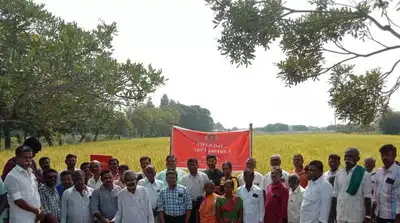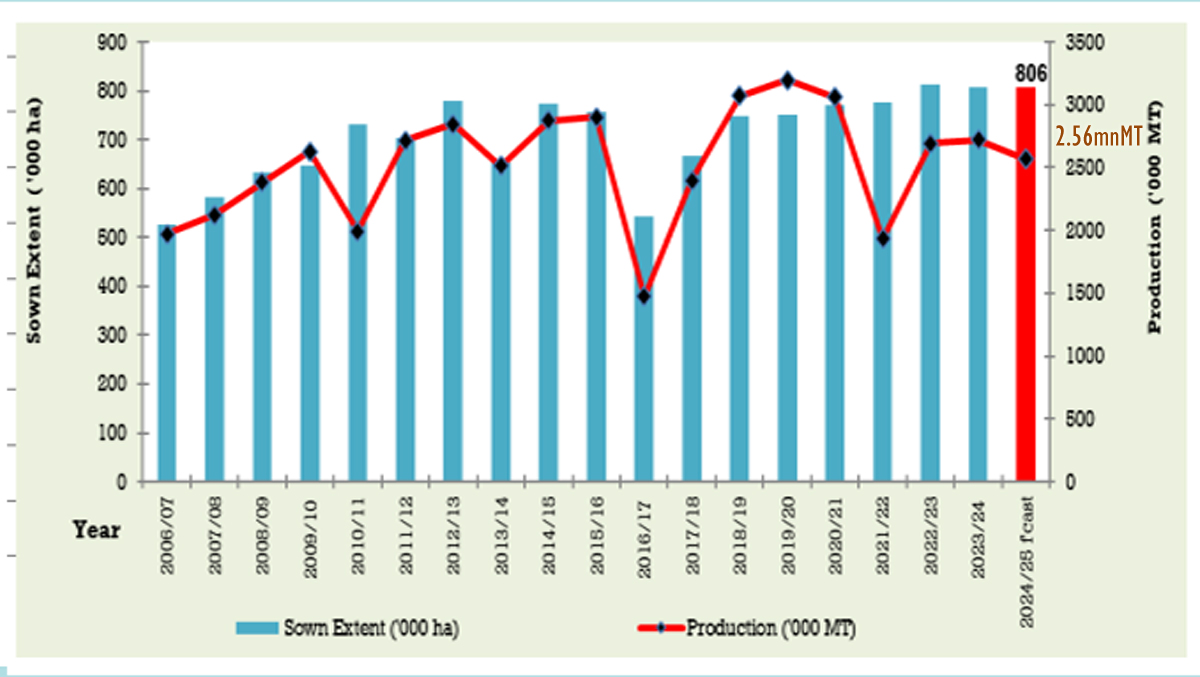Tags
Indonesia calls in army to help farmers plant rice as El Niño and drought curbs output

The Indonesian president has urged rice farmers to “plant, plant, plant”.(Reuters: Sigit Pamungkas, file)
Indonesia has ordered its military to help farmers plant rice as severe drought reduces output of the staple in South-East Asia’s most populous country, lifting prices, requiring increased imports and threatening food security.
With planting behind schedule due to dryness fuelled by the El Niño weather phenomenon, President Joko Widodo asked military supervisory officers in villages known as Babinsa to help take advantage of recent rains.
“Since rainfall has occurred on some provinces, we want to encourage farmers to start planting rice,” Mr Widodo, known as Jokowi in Indonesia, said during a visit to Pekalongan regency in central Java, according to video posted on the presidential YouTube channel on Wednesday.
“It has been delayed due to El Niño, but we want to immediately plant, plant, plant,” he said, standing next to newly-planted rice fields.
Global rice supplies have tightened this year as El Niño, which typically causes hotter and drier weather in South-East Asia, reduced output in major producing and consuming countries.
Prices in Asia’s key export hubs have risen by as much as 45 per cent to their highest in 15 years after India, the world’s top supplier, restricted exports.
Drought has delayed Indonesia’s planting for the 2024 harvest, after the country’s output this year dropped to 30.9 million tonnes from 31.53 million tonnes a year ago.
Sugiono, a Babinsa officer attending the event, told Jokowi he had joined month-long training on rice planting in order to help the farmers, according to the video.
Earlier this month, Indonesia’s agriculture minister and its armed forces chief signed a cooperation agreement that includes military personnel helping in farming and utilising idle military land for planting, with seedlings and machinery provided by the farm ministry.
“Some farmers have land but are short of manpower as the farmers are getting older while the younger generations prefer to work in factories, so the armed forces can help with tools and personnel,” said military spokesperson Julius Widjojono.
While typically only one Babinsa is assigned to a village, Mr Widjojono said the officer can map out manpower needs for planting and they would be deployed from nearby military units.
Agriculture Minister Amran Sulaiman said earlier this month that the involvement of armed forces in the past had helped Indonesia to achieve food self-sufficiency, and renewed cooperation could help the country reduce rice imports.
Indonesia has emerged as one of the top rice importers after state procurement company Bulog was assigned to import 3.5 million tonnes this year.
This week, Bulog began buying rice through an international tender of up to 534,000 tonnes, expected to arrive by end-January, European traders said.
Indonesia’s rice-planted area between September and November declined by 53.61 per cent from a year ago, according to farm ministry data.
The crops planted in the last quarter of the year usually produce the main harvests for the next year.
Still, Indonesia said it expects rice output to increase to 32 million tonnes in 2024, while the main harvest in March and April will contribute 10.07 million tonnes, a 14 per cent increase from this year.
Farmers suffering through water and fertiliser scarcity
Qomarun Najmi, a member of the Indonesian Peasants Union board, considers including Babinsa to assist farmers “a good initiative”.
“It will be even better if [their role] is customised depending to what farmers need,” the paddy farmer in Sleman, Yogyakarta said.
“Our biggest issues are water and fertiliser scarcity,” he said.
“Drought is undoubtedly an impact of the El Niño phenomenon and climate change in general.”
Mr Qomarun said the climate issue has affected farmers many times, with some periods even worse than now.
“The government has done a good job in informing us about El Niño and its impact, including recommending planting-season adjustments so we won’t lack water during harvest,” he said.
Mr Qomarun said the union has prepared local seeds and a technology that’s adaptive towards drought, including fertiliser that can be made by the farmers themselves.
“But we need [the] government’s support in developing this technology on a massive scale,” he said.
https://www.abc.net.au/news/2023-12-15/indonesia-calls-in-army-to-help-farmers-plant-rice-drought/103234316Published Date: December 15, 2023








